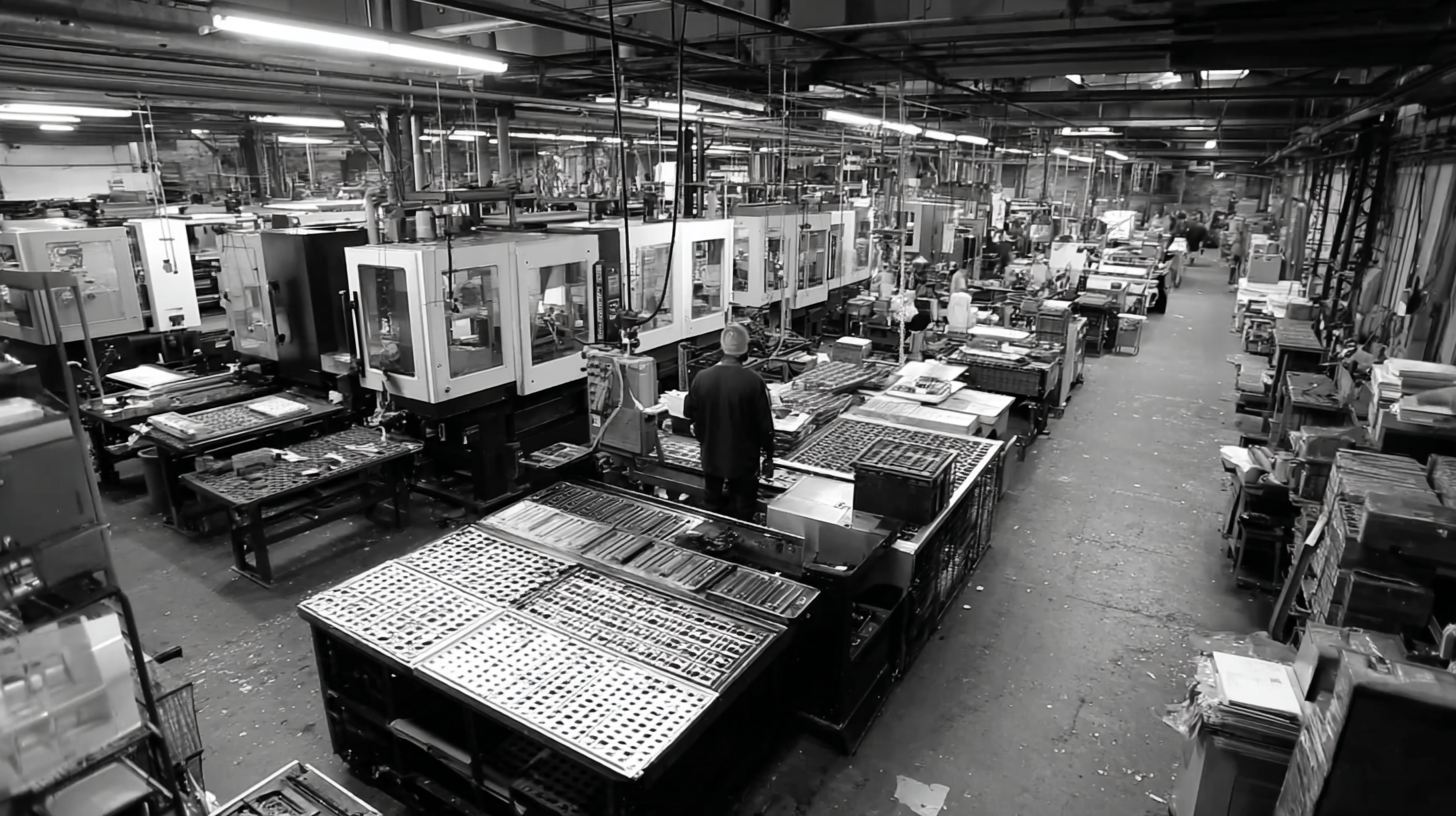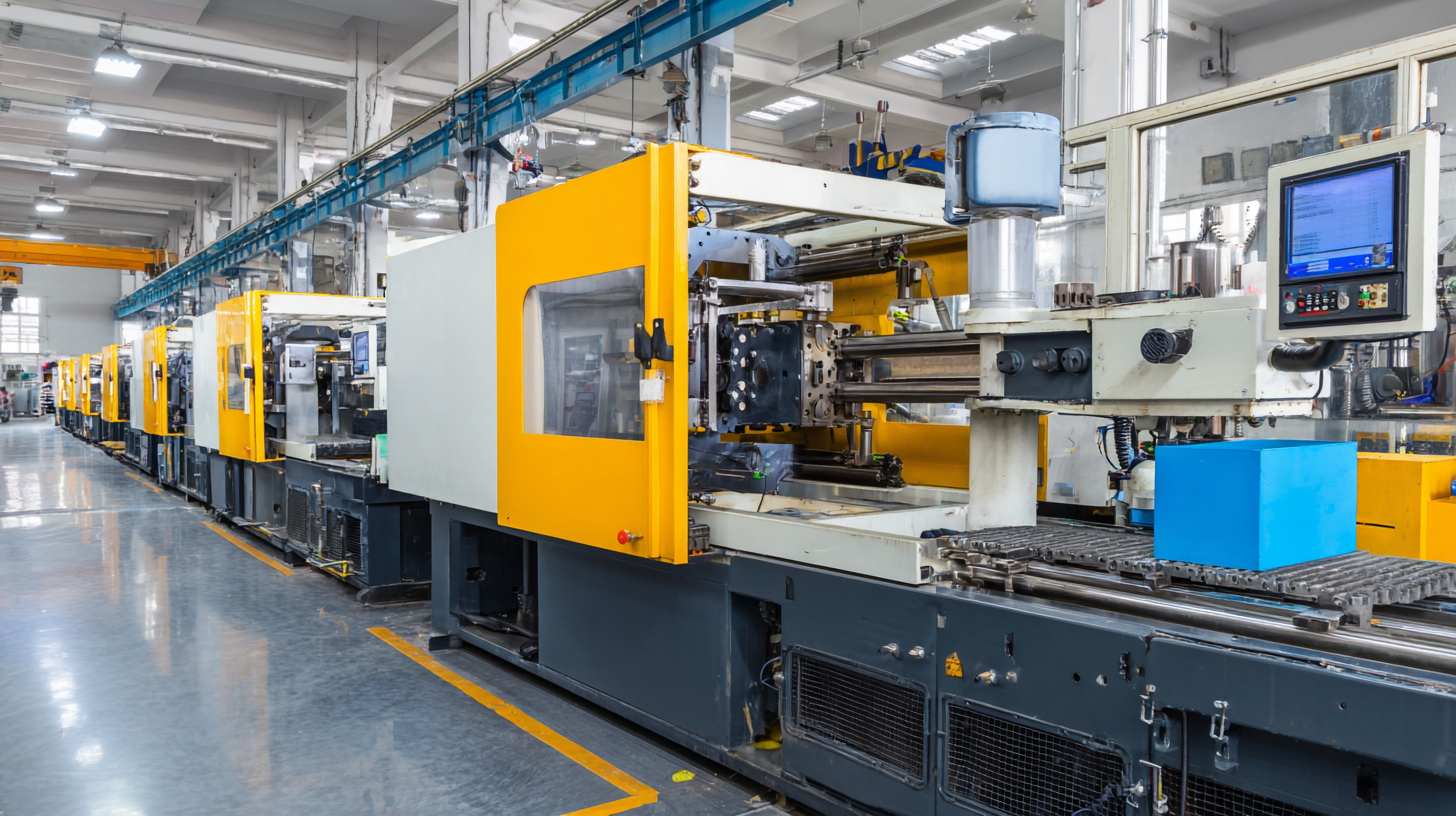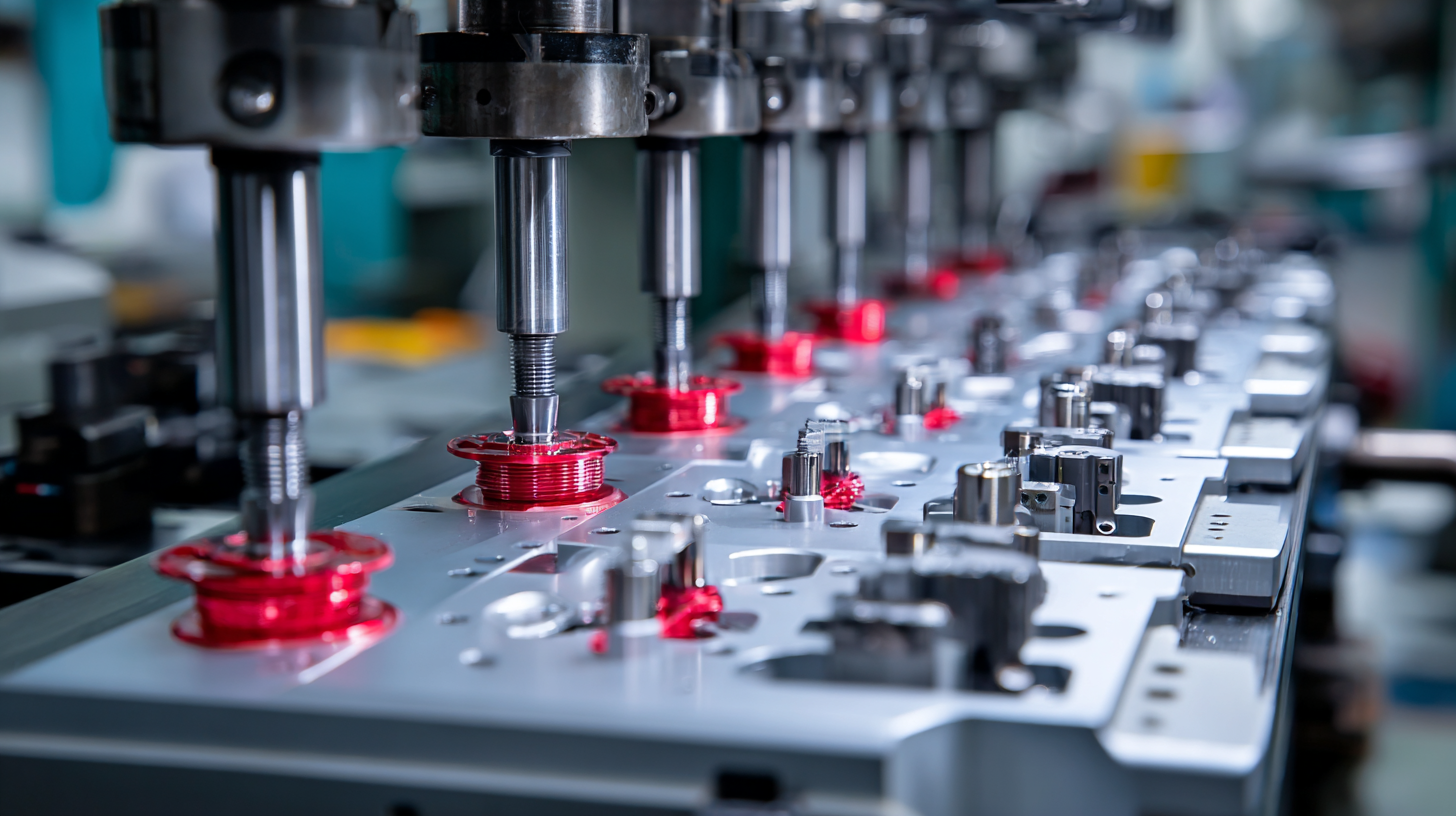Maximizing Your Investment with Exceptional After Sales Service in Low Volume Injection Moulding
In the rapidly evolving landscape of manufacturing, low volume injection moulding has emerged as a vital strategy for companies seeking to optimize their investments and enhance customer satisfaction. According to recent market analysis reports, the global low volume injection moulding market is projected to experience a compound annual growth rate (CAGR) of approximately 5.2% from 2020 to 2025. This growth is driven by the increasing demand for customized products and the rising adoption of advanced manufacturing techniques. Exceptional after sales service plays a crucial role in this sector, allowing businesses to differentiate themselves and build long-lasting client relationships. As companies navigate this competitive environment, investing in high-quality after sales support not only maximizes the value of low volume injection moulding services but also ensures sustainable business success in the long run.

Maximizing ROI Through Superior After Sales Service in Low Volume Injection Moulding
In the realm of low volume injection moulding, the importance of superior after sales service cannot be overstated. After an investment in custom moulding solutions, clients expect seamless support and communication to ensure their projects run smoothly. By prioritizing exceptional after sales service, companies not only enhance client satisfaction but also maximize their return on investment (ROI). Effective support includes prompt responses to inquiries, technical assistance, and timely maintenance services, which collectively contribute to reducing downtime and optimizing production efficiency.
Moreover, a strong after sales service strategy fosters long-term relationships with clients. By offering tailored solutions and proactive support, businesses can ensure that their customers feel valued and understood. This commitment to service breeds loyalty and can lead to repeat business and referrals, further bolstering revenue streams. In a competitive market, those who invest in superior after sales service often find themselves ahead, as satisfied clients are more likely to invest in future projects, knowing they have reliable support throughout their manufacturing journey.
The Importance of After Sales Support in the Low Volume Manufacturing Sector
In the low volume manufacturing sector, the significance of after sales support cannot be overstated. As companies invest in custom injection moulding, the integration of robust after sales service emerges as a pivotal factor that can significantly influence client satisfaction and retention. With lower production runs, any defects or issues need to be addressed promptly to avoid costly setbacks. Providing exceptional support ensures that clients feel valued and supported throughout the lifecycle of their products, fostering long-term partnerships.
Moreover, effective after sales service contributes to continuous improvement and innovation. By maintaining open lines of communication, manufacturers can gather valuable feedback that aids in refining processes, enhancing product quality, and identifying emerging market needs. This proactive approach not only strengthens customer trust but also positions companies to adapt swiftly in a competitive landscape. As a result, investing in after sales support not only maximizes returns for manufacturers but also enhances the overall customer experience in the low volume injection moulding sector.
Maximizing Your Investment with Exceptional After Sales Service
This chart illustrates the importance of after sales support in the low volume manufacturing sector, focusing on customer satisfaction and service quality metrics. The data reflects typical outcomes associated with various levels of after sales service.
Key Metrics for Evaluating After Sales Service in Injection Moulding
In the low volume injection moulding industry, exceptional after sales service is not just a luxury; it is a crucial determinant of long-term success. Evaluating after sales service requires an analysis of key metrics that can significantly impact customer satisfaction and project outcomes. One important metric is response time. A rapid response to customer inquiries or issues not only builds trust but also ensures minimal downtime, allowing projects to remain on schedule. Companies that prioritize swift resolution will garner loyalty and repeat business.
Another essential metric is the quality of technical support provided. This includes the availability of knowledgeable staff who can assist clients with troubleshooting and maintenance. High-quality technical support can prevent minor issues from escalating into costly production halts. Furthermore, tracking customer feedback through surveys and follow-up calls can provide invaluable insights into areas for improvement and innovation, ensuring that the service provided continuously evolves to meet client needs.
By concentrating on these metrics, injection moulding companies can enhance their service offerings, ultimately maximizing their investment through strong customer relationships.
How Exceptional Service Enhances Customer Loyalty in the Manufacturing Industry
 In the manufacturing industry, exceptional after-sales service can significantly enhance customer loyalty, especially in the niche of low volume injection moulding. Customers appreciate being treated as partners rather than just transactions, and outstanding service fosters this relationship. When clients feel supported post-purchase, they are more likely to return for future projects and recommend your services to others.
In the manufacturing industry, exceptional after-sales service can significantly enhance customer loyalty, especially in the niche of low volume injection moulding. Customers appreciate being treated as partners rather than just transactions, and outstanding service fosters this relationship. When clients feel supported post-purchase, they are more likely to return for future projects and recommend your services to others.
Tip 1: Establish clear communication channels for your clients. Regular updates on their orders, quick responses to inquiries, and proactive follow-ups can make a considerable difference. Excellent communication not only builds trust but also shows customers that their satisfaction is your priority.
Tip 2: Implement a feedback mechanism to gather insights from your clients. This allows you to understand their needs better and address any concerns promptly. Following up with improvements based on their feedback demonstrates your commitment to providing exceptional service, enhancing customer loyalty in the long run.
By ensuring a high level of after-sales service, companies can develop lasting relationships that translate into repeat business and strengthen their reputation in the competitive manufacturing landscape.
Case Studies: Success Stories of After Sales Service in Low Volume Injection Moulding
In the realm of low-volume injection moulding, exceptional after-sales service can be a game changer, significantly impacting customer satisfaction and retention. Case studies reveal that companies excelling in this area have reported a 30% increase in repeat business. This is largely due to their proactive approach in providing support, such as troubleshooting, maintenance, and timely replacement of parts.

Furthermore, the integration of AI and robotics in manufacturing processes has streamlined operations, enhancing the responsiveness of after-sales services. For instance, manufacturers that leverage connected robots have reported a 25% reduction in operational downtime. These advancements allow for rapid response to maintenance needs, ultimately fostering customer trust and loyalty. As the industry evolves, it becomes evident that companies providing top-notch after-sales support are not only securing a competitive edge but also contributing to the overall economic development in their regions.